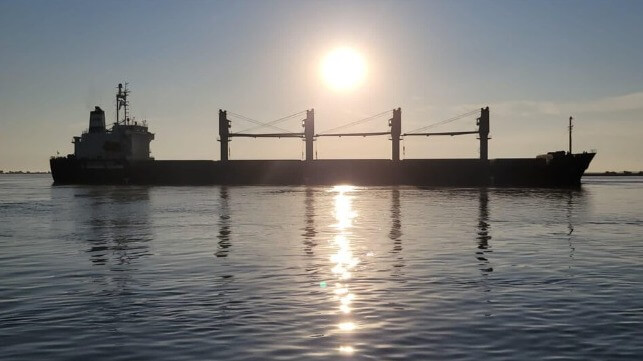Swedish Charterers Work with DNV to Define Green Fleet Renewal

Faced with the need to address the challenges of an aging fleet and the emerging emissions regulations, an alliance of Swedish dry bulk charterers is working with DNV for a feasibility study to develop a commercial framework for orders of green-fueled newbuilds. With strict environmental regulations in the Baltic and North Sea areas and set to expand through the EU and beyond, the goal is to decarbonize the sea transport supply chain.
Known as the Responsible Shipping Initiative (RSI), members see a strong need for green newbuilds to replace the aging shortsea fleet operating in the Baltic and North Sea dry bulk trade and beyond. They note that many of the vessels currently in operation are expected to reach the end of their economic life in the next five to 10 years as market demands and regulatory reporting requirements on environmental performance across the value chain are growing.
“Despite great strides being made to reduce our carbon footprint from land transport, progress has been lagging in shipping, even though this accounts for a large share of our transport needs,” said RSI chairman Sebastian Tamm, Sustainability & Logistics Manager at EFO. “This market-driven initiative is a great opportunity to share knowledge, define parameters and standards, find common ground and discuss possible synergies to determine what is achievable in relation to future shipping needs.”
The study will analyze the consequences of introducing new vessels based on two alternative green ship concepts. DNV reports they will consider the ECO-Bulk concept, designed to reduce emissions as much as possible within current commercial terms, and the ZERO-Bulk concept for zero emissions, which is expected to require more collaboration and longer commitments between stakeholders.
“One of the key challenges to the broader uptake of alternative fuels is the uncertainties among shipowners about what the market wants and is willing to pay for over the lifetime of a new vessel,” says Hannes von Knorring, Principal Consultant at DNV Maritime. “Transport buyers may also lack information on what options are available, and what the practical consequences are to their value chains.”
DNV reports it is starting by mapping each participating company’s current transport routes, cargo volumes, employed vessels, and ports to understand the logistical and cargo handling requirements. They will seek to identify areas with the largest potential for green fleet renewal.
The effort will examine different scenarios based on the existing commercial frameworks, as well as alternative business models such as collaboration between shipowners and bunker suppliers, and public investment support. It will also factor in new environmental regulations including the EU’s Emissions Trading System for shipping.
The study is being supported with R&D funding from the Swedish traffic administration Trafikverket. Among the participants is energy sourcing and logistics company EFO, power company Stockholm Exergi, packaging company Billerud, steel company SSAB, forest owners’ association and industry group Södra, and agricultural cooperative Lantmännen.
